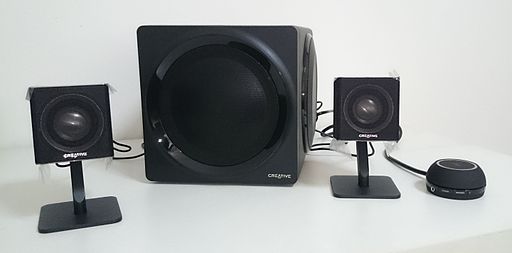
Many homeowners who want the cinema experience from the comfort of their home, when given the chance, will opt for wireless speakers for home theater use. This is because wires can get messy. You can have a spacious, well-furnished entertainment room but it’s going to look ugly if you have spaghetti wiring all over.
But before you shell out for wireless speakers for home theater systems, you need to learn a few things about them. This is to ensure that you won’t accidentally buy something that does not fit your needs or one that won’t even work. For starters, there are a number of different technologies needed to achieve a wireless speaker setup:
Technologies Used for Wireless Speakers for Home Theater Systems
The most common technologies in use for wireless speakers right now are:
- Bluetooth
- WiFi
- WiSA
There are other older technologies that are viable for wireless application, but they tend to have fallen out of favor compared to the three below. While bluetooth, WiFi, and WiSA are all decent options, they have their specific pros and cons:
BlueTooth: Widely Used But Limited
Bluetooth’s main strength is its widespread use. You won’t have trouble with regard to compatibility (unless you are using a bluetooth device that is extremely old and won’t support anything newer than Bluetooth 2.0). Your phones, your game consoles, even your laptop probably uses bluetooth.
The main problem with bluetooth is that there are a few limitations that will affect the quality of sound. Bluetooth “surround” sound systems are a misnomer because the technology isn’t compatible with true 5.1, 7.1, or 7.2 surround sound. It also has spotty (and sometimes non-existent) support for Dolby Atmos and THX. This is because bluetooth has a limited amount of channels it can stream. It works well for two channels of sound, and with proper software support can mimic surround – but audiophiles know that there is HUGE difference between software based surround and true surround.
There are bluetooth surround sound speakers, but bear in mind that they only use bluetooth to transmit data. The speakers themselves are still connected to each other via wires, so they kind of defeat the purpose of going wireless. Lastly, bluetooth only has an effective range of 10 to 20 feet away from the source, so it could prove to be an issue.
WiFi: Not Really Useful for Speakers
WiFi is not a new technology, and most households that are connected to the Internet already use it. But their application in wireless speakers is relatively new, and mostly popularized by devices like Google Home, Amazon Alexa, and Sonos. They’re not really useful for wireless home theater setups.
The technology is capable, at least in principle. The problem is that WiFi signals are too crowded to support surround sound. They have very limited application as there is a huge potential for signal loss and interference due to the number of devices that use WiFi (keep in mind that it’s not just your house you need to worry about – neighbors that use WiFi could potentially be using the same wifi frequencies your speaker uses.)
You might get away with a stereo or two speaker setup, but surround sound can encounter interference and result in choppy or clipping sound.
WiSa: Your Best Option for Wireless Speakers for Home Theater Use
Currently, your best bet for wireless speakers for home theater use are speakers that use WiSa technology. This is a standard from the Wireless Speaker and Audio Association, which is designed specifically for wireless surround sound application. You won’t encounter any of the problems associated with Bluetooth or wifi, but the caveat is that you specifically need to find a WiSa certified device. They’re not as widely adopted yet, but a professional home theater installer like Digital Integration will be able to help you.
So if you are looking to get rid of those messy wires in your home theater system but want the best surround sound quality your budget will allow, you should call Digital Integration and we will happily give you some much needed advice and assistance.
